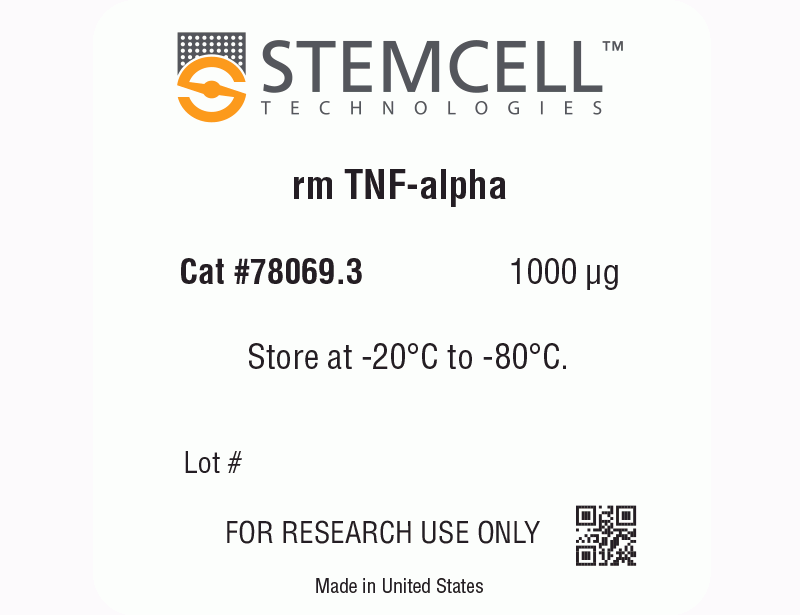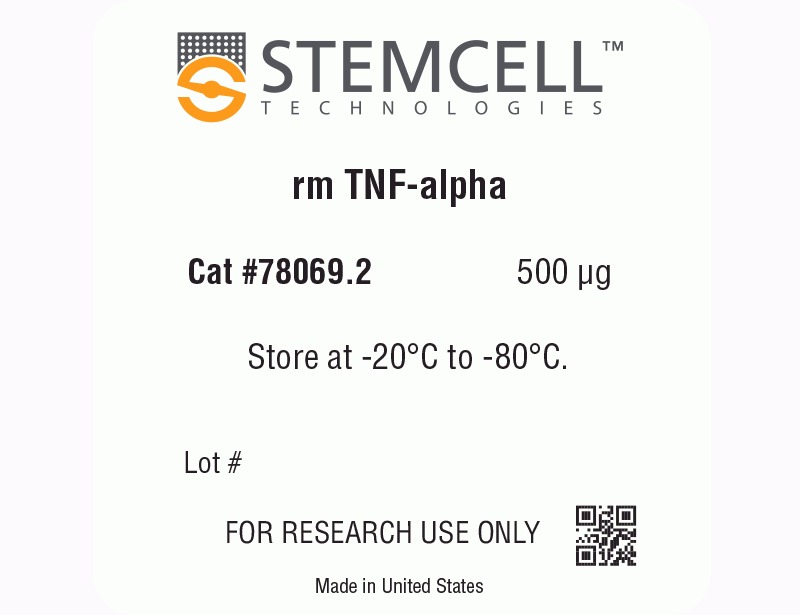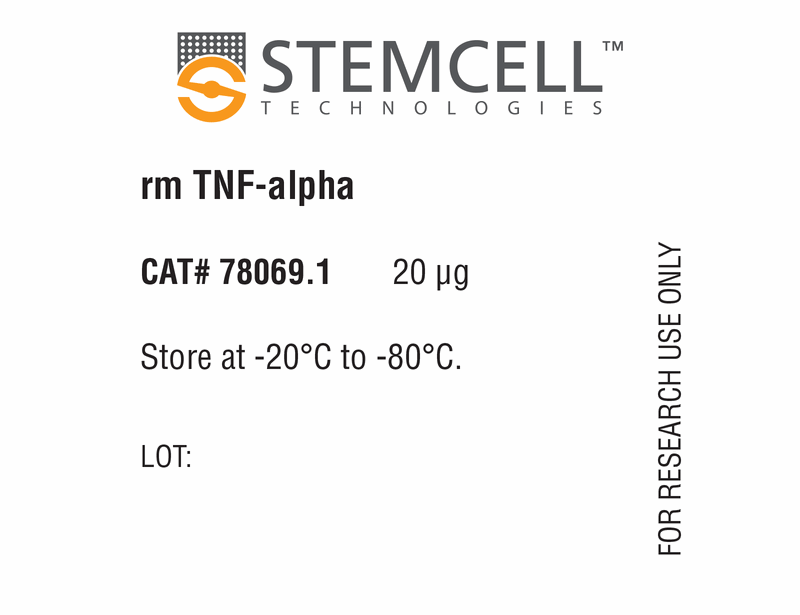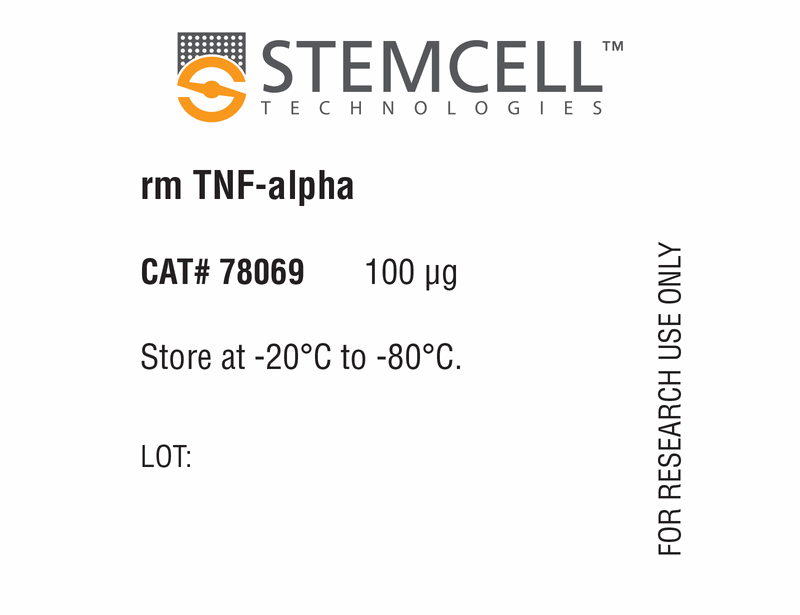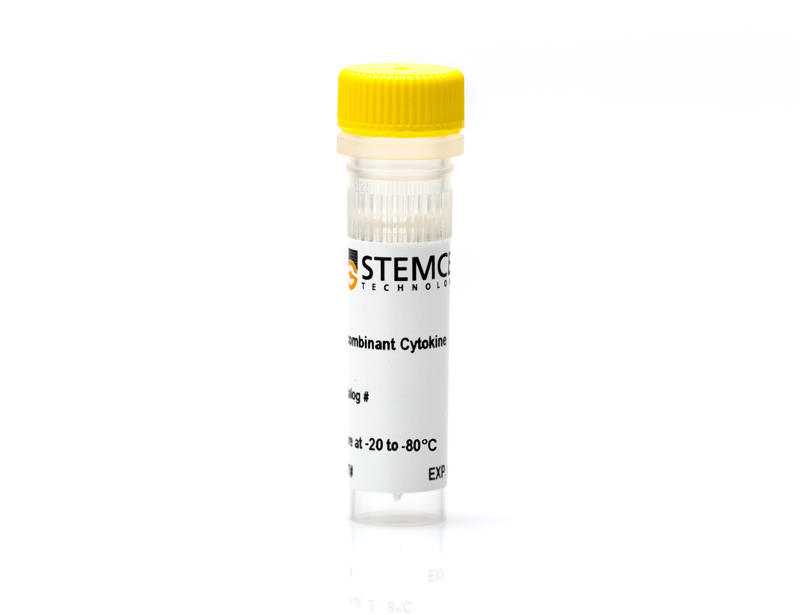概要
技术资料
| Document Type | 产品名称 | Catalog # | Lot # | 语言 |
|---|---|---|---|---|
| Product Information Sheet | Mouse Recombinant TNF-alpha | 78069, 78069.1, 78069.2, 78069.3 | All | English |
| Safety Data Sheet | Mouse Recombinant TNF-alpha | 78069, 78069.1, 78069.2, 78069.3 | All | English |
数据及文献
Data
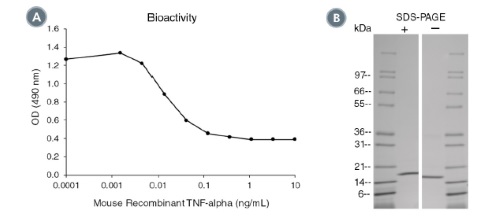
(A) The biological activity of Mouse Recombinant TNF-alpha was tested by its ability to induce cytolysis of L929 cells growing in the presence of actinomycin D. Cell viability was measured after 19 hours of culture using a fluorometric assay method. The EC50 is defined as the effective concentration of the growth factor at which cell viability is at 50% of maximum. The EC50 in the above example is 0.013 0.02 ng/mL. (B) 1 μg of Mouse Recombinant TNF-alpha was resolved with SDS-PAGE under reducing (+) and non-reducing (-) conditions and visualized by Coomassie Blue staining. Mouse Recombinant TNF-alpha has a predicted molecular mass of 17.4 kDa.

 网站首页
网站首页
